Ever tossed and turned all night, struggling to find the best temperature for sleep? You’re not alone. Temperature plays a vital role in sleep quality, and finding the ideal sleep environment can make all the difference.
Let’s dive into the science behind sleep and temperature and discover how to create the perfect sleep haven.
Key Takeaways
- The best temperature for sleep is between 60 and 67°F (15 to 19°C), according to experts.
- 65°F (18.3°C) is thought to be the “perfect” sleep temperature.
- However, personal factors such as body size, age, and metabolism, and external conditions like climate and living conditions can affect your ideal range.
Understanding the Connection Between Sleep and Temperature
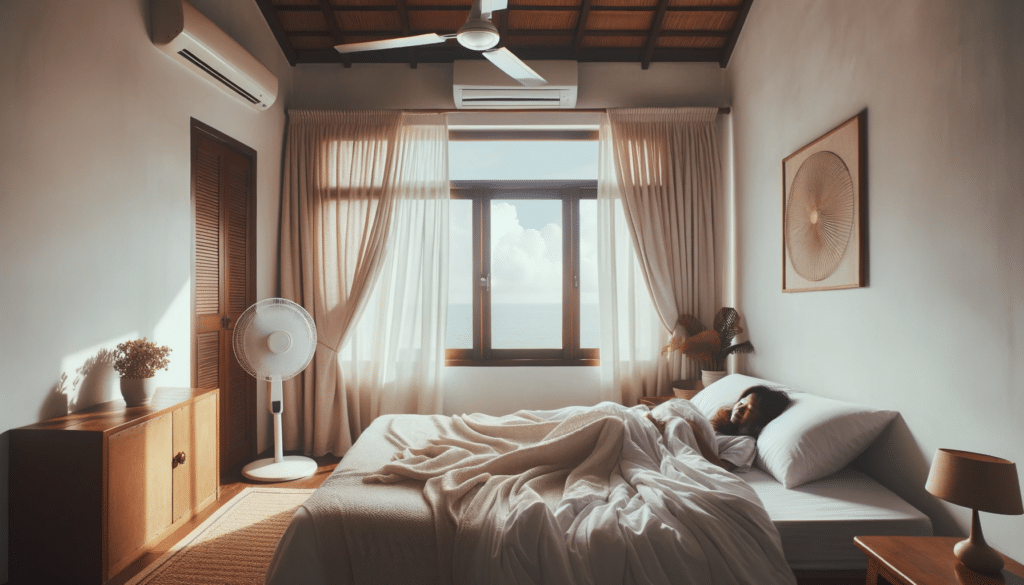
A comfortable sleep temperature is the foundation of a restful night. Research shows that a rise in bedroom temperature from 77°F to 86°F can lead to a 5 to 10% decrease in sleep efficiency, affecting your sleep cycle. A hot room makes it difficult for your body to stay at a comfortable temperature while you sleep, resulting in more frequent awakenings.
What’s the mechanism behind our bodies’ regulation of temperature during sleep, and why does it matter?
The Importance of Circadian Rhythm
Circadian rhythm, the body’s internal clock, runs on a 24-hour cycle and regulates sleep, among other essential functions. It controls our body temperature, which in turn, affects our sleep patterns and quality, including slow-wave sleep. Light exposure, blood flow, and other biological processes play a part in maintaining the body’s circadian rhythm.
What’s the effect when our core body temperature varies during different sleep stages?
Core Body Temperature and Sleep Stages
Core body temperature drops during deep sleep and rises during REM sleep. This temperature change can impact falling asleep and staying asleep. A consistent sleep schedule helps keep your body’s sleep physiology in check, ensuring better sleep quality and overall health.
Determining Your Ideal Sleep Temperature
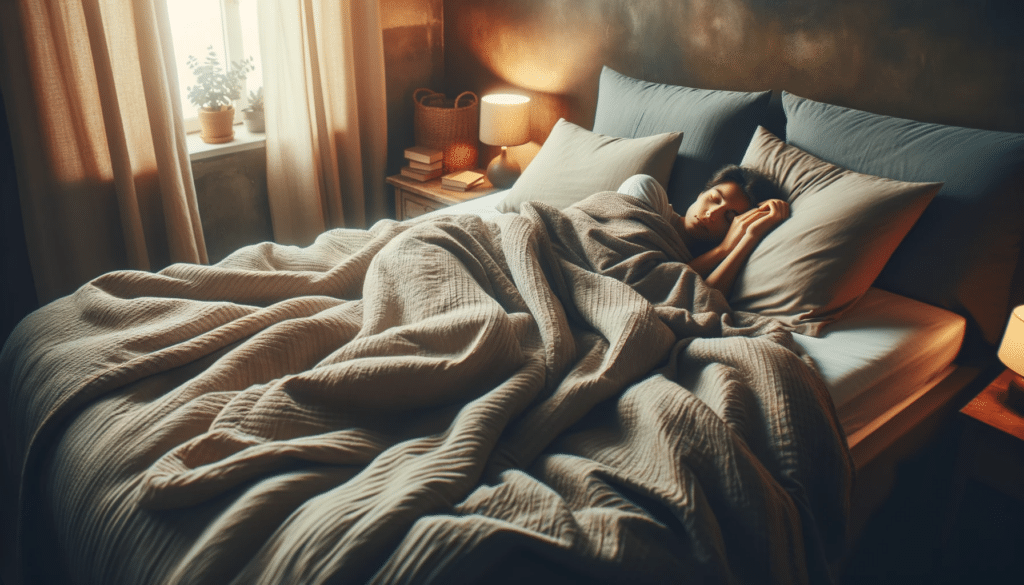
Finding the right sleeping temperature is essential for optimal rest. Experts recommend a sleep temperature range between 60 and 67°F (15 to 19°C) as the best temperature for sleep, with 65°F (18.3°C) considered the most optimal temp. However, personal factors, such as body size, age, and metabolism, can influence your ideal sleep temperature.
Personal Factors Affecting Sleep Temperature
Age, health, and individual preferences can all affect the best sleep temperature for a person. Here are some factors to consider:
- Older adults usually prefer it warmer
- Younger adults might favor cooler temperatures
- People with certain health issues might need to adjust their sleep temperature
Considering these personal elements allows for the optimization of your sleep environment, leading to a more peaceful slumber and a good night’s sleep.
Strategies for Maintaining the Perfect Sleep Environment
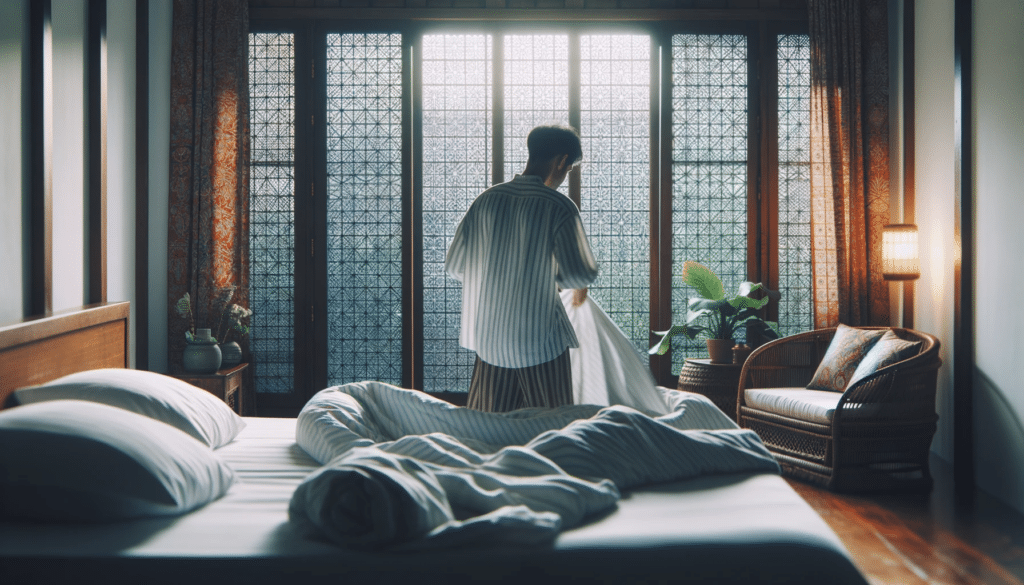
Now that you know the importance of sleep temperature and personal factors, it’s time to create the perfect sleep environment. This involves adjusting your bedding and sleepwear, regulating room temperature, and preparing for sleep.
Adjusting Bedding and Sleepwear
Choosing high-quality bedding and sleepwear made from materials that help regulate body temperature is essential for a good night’s rest. Cooling pillowcases, wool comforters, and bamboo sheets can all contribute to maintaining the ideal sleep temperature.
Additionally, breathable fabrics like cotton and avoiding synthetic materials can help keep you comfortable throughout the night.
Regulating Room Temperature
Maintaining a consistent room temperature within the optimal range is crucial for quality sleep. Some tools that can help you achieve the perfect temperature, including air conditioning, are:
- Thermostats
- Fans
- Humidifiers
- Space heaters
Be mindful of external factors like weather, season, and location, as they can influence your bedroom’s temperature and affect your sleep.
Preparing for Sleep
Engaging in relaxing activities before bed can promote better sleep. Taking a warm bath or foot soak can lower your body temperature, increase melatonin production, and make it easier to fall asleep.
Additionally, turning down the lights and avoiding stimulating activities before bed can help create a sleep-friendly environment and improve sleep quality.
The Impact of External Factors on Sleep Temperature
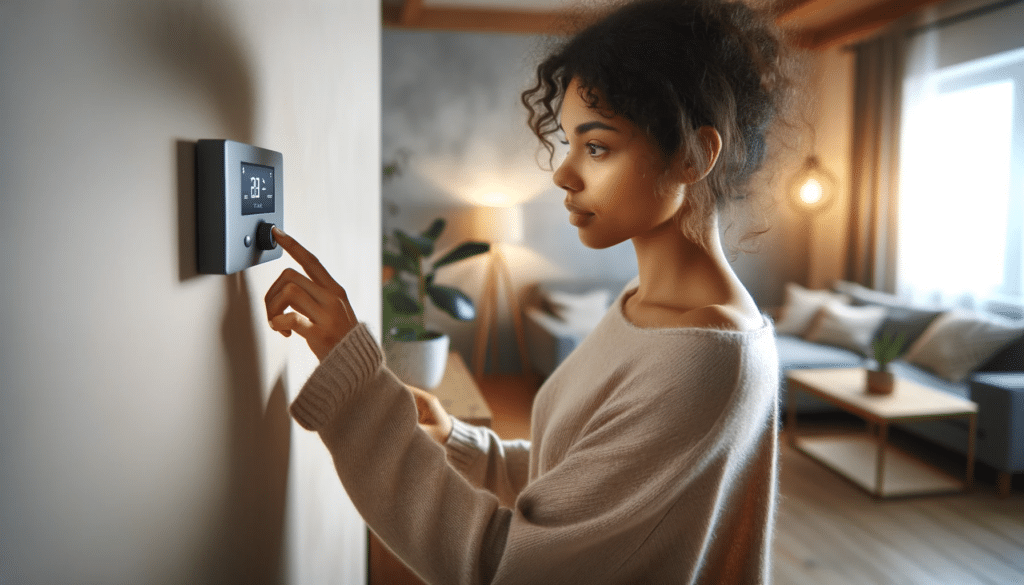
Climate change and the urban heat island effect can significantly impact sleep temperature and quality, particularly for older adults and lower-income groups. Scientists are especially concerned about older adults who cannot cool their homes due to economic reasons or have limited mobility and cognitive decline.
When to Seek Professional Help for Sleep Problems
If you’ve tried all the self-help methods but still struggle with sleep, it’s time to seek professional help. Most sleep disorders are treatable with proper diagnosis and treatment.
We should delve into the significance of diagnosing sleep disorders and the contribution of sleep medicine to enhancing sleep quality.
Identifying Sleep Disorders
Signs of sleep disorders include daytime tiredness, unusual breathing or movement during sleep, constant exhaustion, irritability, difficulty concentrating, and mood changes. Common sleep disorders include sleep onset insomnia, restless legs syndrome, narcolepsy, and sleep apnea.
The Role of Sleep Medicine
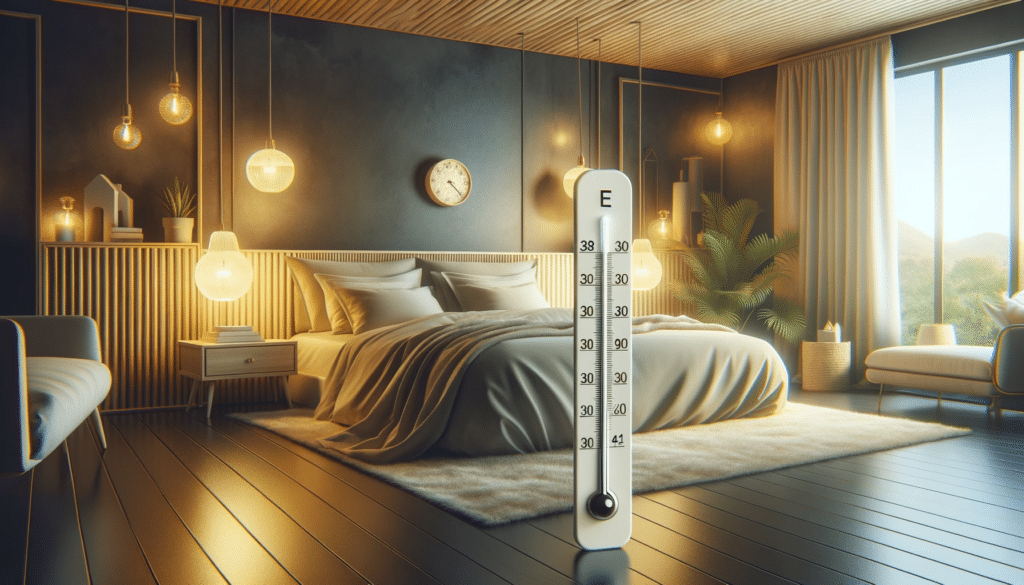
Sleep medicine, led by a sleep specialist, plays a significant role in diagnosing and treating sleep disorders, ensuring better sleep quality and overall health. Proper diagnosis and treatment can help improve sleep and reduce the risk of developing other medical issues. Sleep medicine can also provide guidance on lifestyle changes to further enhance sleep and health.
Summary
Finding the best temperature for sleep is a significant factor in achieving optimal rest. By understanding the connection between sleep and temperature, personal factors, and external influences, you can create the perfect sleep environment. Remember to seek professional help if self-help methods do not improve sleep quality.
Sweet dreams!
Frequently Asked Questions
What temp is too cold to sleep in?
It’s generally advised that temperatures for sleep should stay between 60-67 degrees Fahrenheit; any lower or higher can be disruptive to a good night’s sleep. If you find yourself shivering in bed, it’s probably too cold to fall asleep comfortably.
How do personal factors influence sleep temperature?
Age, body size, metabolism, and individual preferences all play a role in determining a person’s preferred sleep temperature. Everyone is different, so make sure to find the sleep temperature that works best for you.
What materials should I choose for bedding and sleepwear to regulate temperature?
For optimal temperature regulation, choose materials like cooling pillowcases, wool comforters, bamboo sheets, and breathable cotton fabrics for your bedding and sleepwear.






